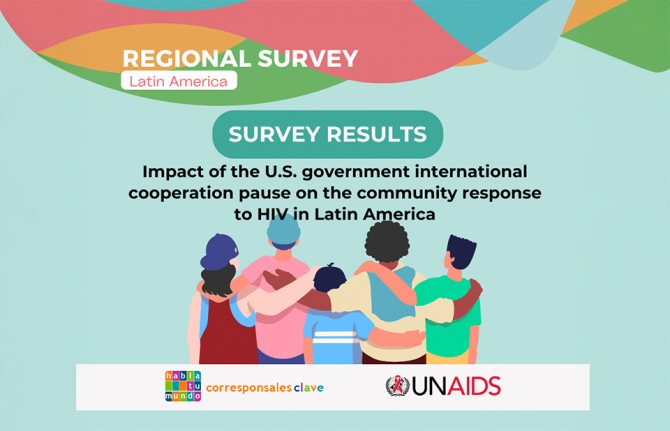



Feature Story
Generating income from rag dolls in Brazil—helping women living with HIV during the COVID-19 pandemic
24 May 2022
24 May 2022 24 May 2022Iranilde Pereira Fonseca and Michele Almeida are two middle-aged women who come from different parts of Brazil but share a common childhood memory: they used to collect scraps of cloth to make dresses for the few dolls they had. It was a way to revive their handmade toys since their families rarely had spare money for new ones.
But it was not until the COVID-19 pandemic that they had the opportunity to reconnect with their past and use it as a source of survival and income. They are among the 35 women who participated in the Mulher Empreendedora (Women Entrepreneur) project, a social entrepreneurship project implemented by the Movimento Nacional das Cidadãs Posithivas (MNCP) Brazilian HIV nongovernmental organization as a part of the UNAIDS Solidarity Fund. Along with Ms Fonseca and Ms Almeida, they were trained in artisanal doll techniques and in entrepreneurship, so that they could sell their products and obtain resources to address the impact of COVID-19 on their household incomes.
“I used to get scraps of cloth from my mother and loved to make clothes for the dolls I had, but I had not done any of that for many years,” remembered Ms Fonseca. “Now, with the MNCP project, I learned the process of making a doll completely from scratch. With the isolation imposed by COVID-19, it was important to be able to connect, even if only virtually, with women from various parts of Brazil and exchange ideas and experiences through this initiative.”
Of the initial group, 28 women are already selling their handmade dolls independently. The initiative was funded by the Solidarity Fund, launched in 2020 by UNAIDS to support entrepreneurship activities led by people living with HIV and key populations.
Ms Almeida agrees on the importance of connection and mutual support. “I really enjoyed meeting and interacting with the group of women participating in this project. In addition to reconnecting with my origins and my childhood, the techniques I learned helped me to develop a product that people enjoy. I sell my dolls to relatives and friends and through social networks,” she said.
The initiative emerged from the realization that the COVID-19 pandemic had a disproportionate impact on women. The pandemic has especially affected the service sector, such as hospitality, food, beauty and domestic services, for which the majority of the workforce is female. In 2020, the absence of jobs in those areas reduced the active participation of women in the workforce in Brazil to less than 45%.
“The project was extremely important for women living with HIV, as many of them were unable to access the job market, lived with an overload of domestic work, experienced situations of violence and had to deal with the interruption of specialized health services,” said Fabiana Oliveira, the MNCP Secretary of Communication and Technical Coordinator of Mulher Empreendedora.
Claudia Velasquez, the UNAIDS Country Director for Brazil, highlighted that the Solidarity Fund’s support to MNCP is in line with the strategic vision of putting people and communities at the centre of the HIV response while building sustainable income-generating mechanisms. “This approach is particularly important for the most vulnerable populations, such as these women living with HIV served by the MNCP, who have strongly felt the drop in income caused by the COVID-19 pandemic. Providing these women with their own access to financial resources and financial security ends up having a positive impact on their adherence and permanence in the HIV monitoring and treatment processes,” she said.
Ms Oliveira highlighted that Mulher Empreendedora had created an opportunity for participants to restructure and rewrite their personal stories. “Rag dolls have this power to stimulate imagination and creativity and even offer the equivalence of a real hug,” she said.



